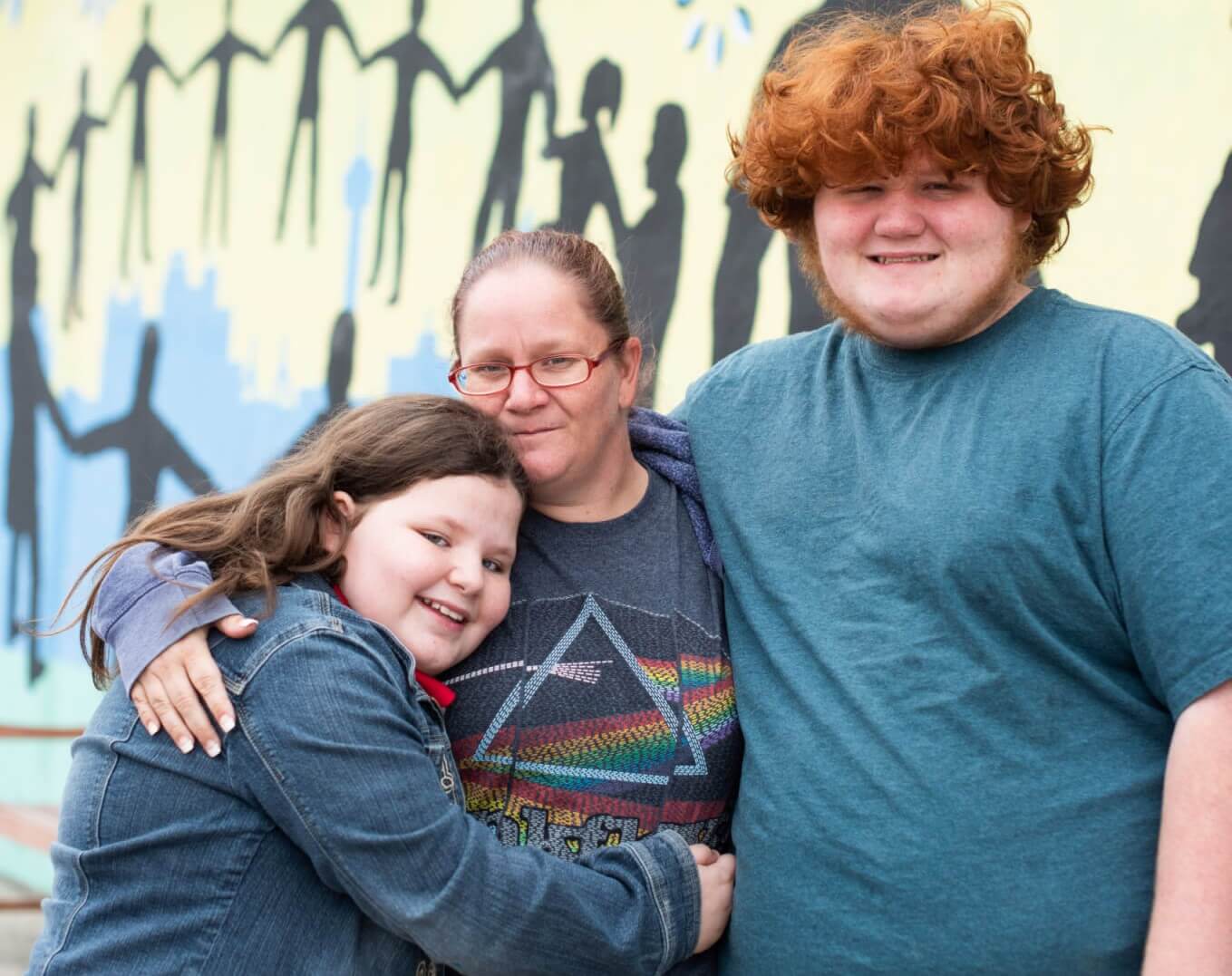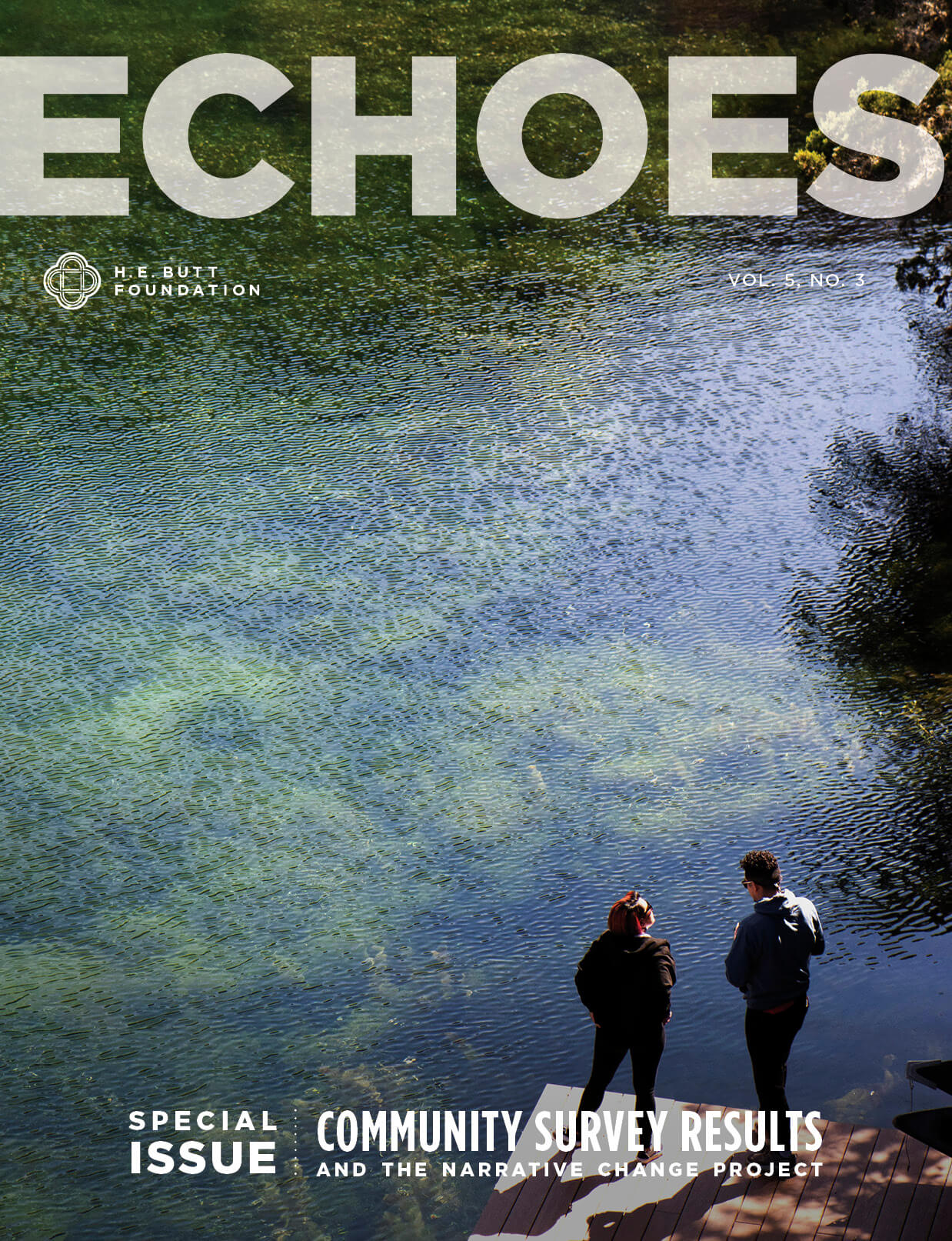
The world we are living in today looks very different from the one we were living in when 2020 began. Early this year as the pandemic took hold, everyday tasks brought a new sense of risk for all of us. We faced deep uncertainty about the future of our health, our economy, and our communities. As the virus spread, we grappled with news of disparities in COVID-19 infections and the related economic shutdown, which hit people of color the hardest. Then, in the spring and early summer, the murders of Ahmaud Arbery, Breonna Taylor, and George Floyd led to prolonged worldwide protests over the legacy of racism.
These events are revealing longstanding and difficult truths about how the world is organized. And in the midst of these crises, we have the responsibility to shape a new normal—one that’s better than before.
How do we do that? It’s a big question that needs lots of answers. We don’t have all those answers, of course, but we do have one: the way forward is relationships—individual relationships, mentoring relationships, church and organizational relationships.
As a solution to a big social problem like inequity, “relationships” may sound too simple or too soft. But lack of connection between people perpetuates a lack of empathy and understanding, which leads to a lack of vision for lasting change. And there’s nothing soft about relationships—it is tough to live out long-term, persistent relationships, especially ones that call us into unfamiliar places and push us toward people whose experiences are very different from our own.
In the fall of 2019, we sent a community survey to over 20,000 people, most of them Christians living in various parts of Texas, predominantly Houston, Austin, Dallas, and San Antonio. The survey measured responses to questions about the huge gaps in opportunity that exist between neighborhoods. We’re concerned about these gaps because we know that neighborhoods are the engine of children’s lives; studies show that one of the top predictors of life outcomes is the ZIP code of a child’s birth. In San Antonio, for example, there is a 20-year difference in expected lifespan between people living in different neighborhoods that lie just a few miles apart.
Our longtime constituents—friends, guests, and partners—may wonder why we’re stepping into these issues. We are not a policy think tank or an advocacy organization. We are a faith-based operating foundation, and the vast majority of our resources support camping and retreat programs we run on our property in the Texas Hill Country. That will not change.
We’re exploring these issues because they are in keeping with our organizational mission. Of the roughly 25,000 people who visit our property each year, the vast majority come experience the facilities at no charge, many through associations with churches and nonprofits that work with people who live in communities where resources are limited.
Also, in recent years we’ve built a new program, Community Engagement, that seeks to build healthier families and children in the regions we serve, especially San Antonio, Kerrville, and Real County. This work has introduced us to leaders working on the front lines of community challenges like affordable housing, underemployment, lack of access to strong education and healthcare, and more. The experience has inspired us to do more learning and gain more perspective.
We’ve been sharing the stories of this work for some time in a variety of ways—in our magazine, Echoes, through our social media accounts, and in a range of public events and experimental projects. Now, we’re growing and maturing this storytelling work by launching what we’re calling The Narrative Change Project, with the express intention of changing unhelpful narratives about why poverty exists and persists in our region.
But as we step into this work and speak about these issues, we wanted to first engage our friends, guests, and partners directly. In particular, we wanted to gauge their thoughts and feelings about the complex, often confusing, issues of poverty and inequity.
So, we asked our entire database of over 20,000 people about these issues. Which social concerns worry them most? Do they feel that poverty and inequity are challenges we all need to address? What are they doing about it? What is their faith community doing about it? We asked even stickier questions about how they think race factors into people’s economic conditions, whether the American Dream is still alive, and what the Bible has to say about all this.
We asked, and they answered—enthusiastically, thoughtfully, and in greater numbers than we expected. In addition to checking boxes on optional answers, they also wrote in additional comments—what we call “verbatims.” Some of them wrote more words onto the margins of their survey than were included in the survey itself! We’ve transcribed all those responses, which amount to a powerful listening device. You will see some of those verbatims sprinkled throughout this report.
These responses told us many interesting things, and there are a range of lessons to draw from the results. One of the main takeaways was one we did not expect, but one that we think emerges from these results and points our way forward: we must find ways to build the kinds of relationships that can repair our fragmented, inequitable world.
About this time last year, we sent you a community survey. That was our way of starting a conversation with you about the gaps that exist within our communities, especially the gaps in opportunities and resources that leave so many families and children struggling to survive.
Who received and responded to the survey? The basic answer: older people of Christian faith in Texas who tend to have an abundance of resources. These mature, affluent, religious communities see themselves as oriented to the needs of people experiencing poverty in their areas.
We asked 20,000 people questions about what social concerns they feel need the most attention. We also gave them a chance to tell us about what they’re already doing in their community. Here's what we learned.
